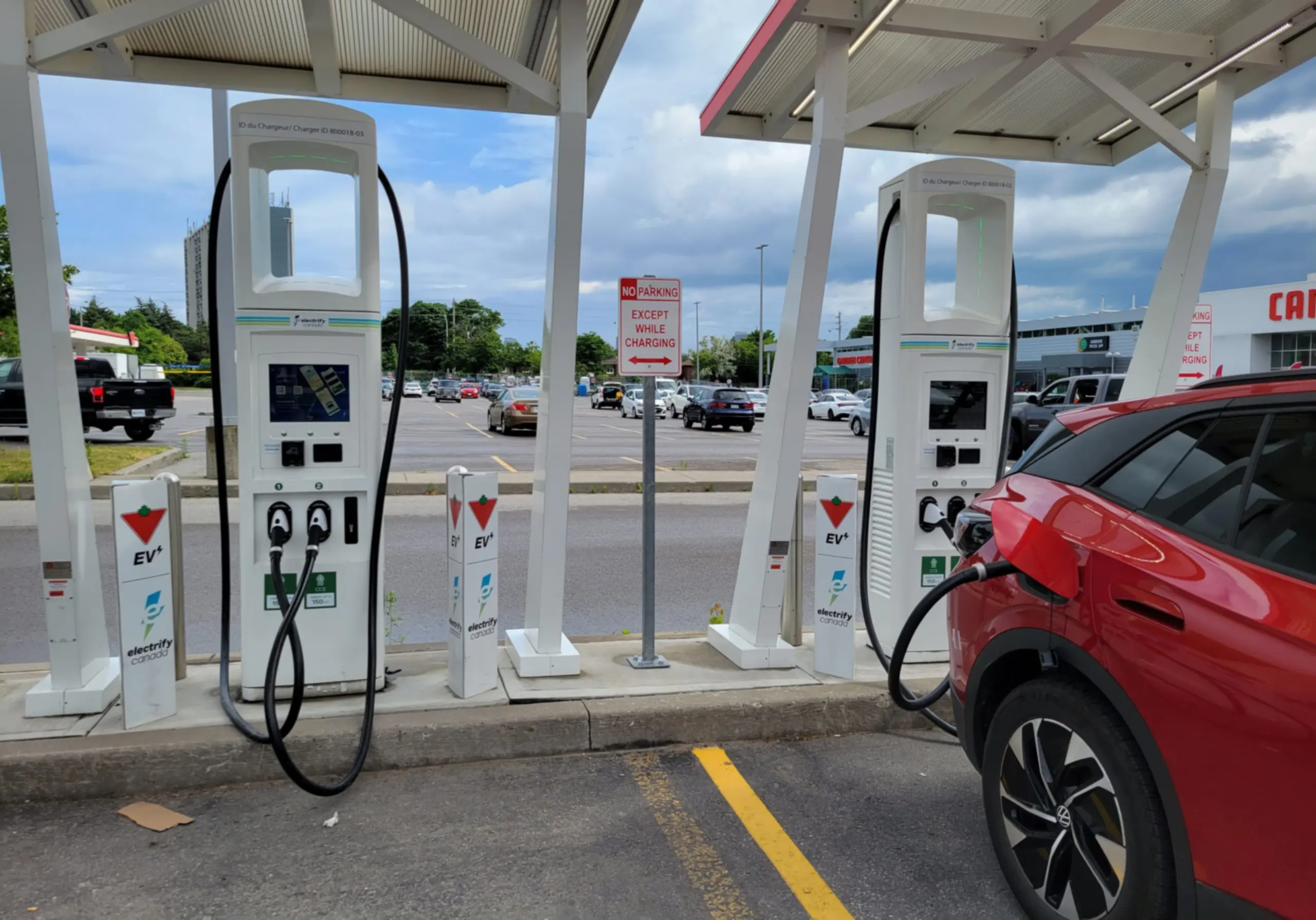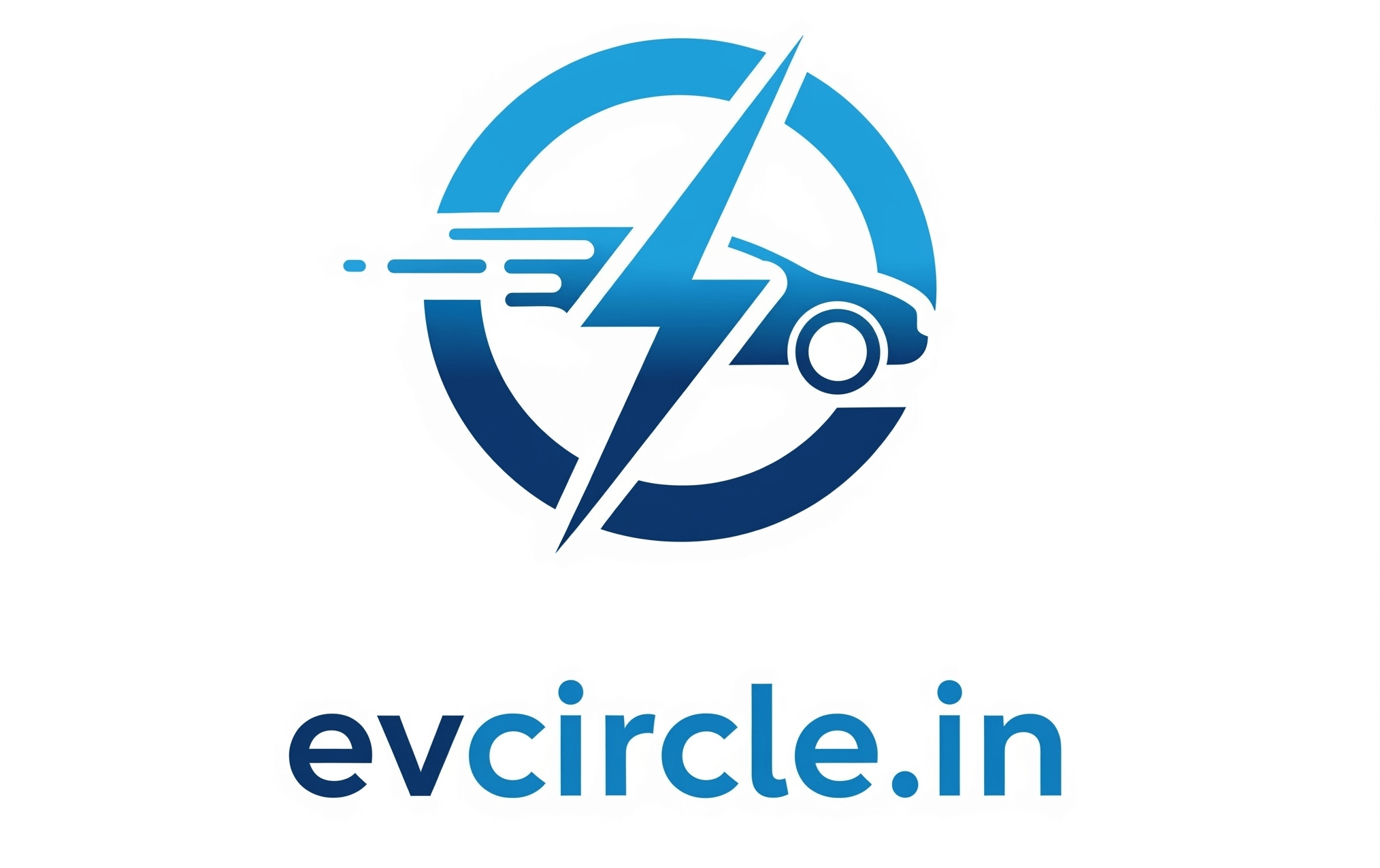
Not much changed immediately for electric-vehicle drivers across Canada after the federal government announced a retreat from its EV policy. But many motorists worry that infrastructure expansion and better public charging options will slow in the years ahead.
When Julien Kos drove to Moncton earlier this year, his plan depended largely on charging his car at a mall while grabbing a quick meal.
“I got there with 15 per cent and I expected to be able to just charge at the mall,” said Kos, who lives in the remote community of Back Bay, N.B., about 130 kilometres south of Fredericton. But he discovered several public chargers were out of order.
Kos said many provincial public chargers are “unreliable,” while other chargers owned by Tesla are older and work only with Tesla vehicles. With the pause in the EV mandate, he thinks fewer automakers will be motivated to continue investing in EVs, causing a slowdown in overall infrastructure development.
“It’s definitely disappointing to see that there’s not enough infrastructure in our province, specifically,” said Kos, who bought his first Tesla EV in January. The policy change hasn’t altered his intention to keep driving his car.
Prime Minister Mark Carney announced Friday that the federal government will not impose a mandate requiring that 20 per cent of all new vehicles sold in Canada by next year be electric, while pledging a 60-day review of the country’s electric-vehicle program.
The mandate was originally intended to ramp up through 2035, by which time all new light-duty vehicles sold in Canada were to be fully electric or plug-in hybrids.
Carney said the review aims to identify “future flexibilities and ways to reduce costs” while government documents indicate changes to the annual sales targets, including the 2035 objective, will be on the table.
The pause likely won’t impact EV adoption nor those who already own one, said Tracy Miersch, EV ambassador team leader for MEET Moncton, who purchased her first EV four years ago.
“Where I think it might impact is the car manufacturers that haven’t really bought into the EV idea,” she said in an interview. “They might slow their development.”
MEET, or Mobile EV Education Trailer, is a program run by Plug’n Drive Canada, an organization that concentrates on EV education.
Miersch said there’s worry that government grants for enhanced public charging stations could be jeopardized, but private businesses might fill that gap in the current infrastructure.
“There are enough private companies and businesses that are now seeing the advantage of having an EV charger at or near their location,” she said.
Coffee chain Tim Hortons announced last month its intention to install EV fast chargers at 100 sites across the country by the end of 2028. The company has teamed up with charging provider FLO.
“I’m not worried about the infrastructure growing,” said Angie Thomas, secretary of the board of the Electric Vehicle Association of Alberta. “But I do worry about future charging projects coming.”
Thomas said the decision could undermine Canada’s opportunity to get ahead of the electric curve.
“Technology is moving ahead very quickly, but we need to embrace this technology or we risk being left behind,” Thomas said.
For Alroy Brouwer, the federal government’s decision to pause the mandate doesn’t change his plan to replace his second vehicle with an EV when that car reaches the end of its life.
“Once people start driving an EV, they’re not going back to a gas-powered car again,” said the Barrie, Ont., resident, who purchased his first EV three years ago.
“You quickly realize how stupid it is to burn $20 in gas every day to get somewhere.”
But his choice depends heavily on the convenience of home-charging infrastructure.
“If you can’t charge it at home, then right now, with our infrastructure, it’s not as easy as switching over,” Brouwer said.
He noted many public charging locations on southern Ontario highways tend to be unreliable and are frequently out of service, or can be quite costly to top up the car.
The mandate pause comes at a time when EV interest is dipping. An AutoTrader survey from April showed 42 per cent of respondents say they’re considering an EV as their next vehicle, down from 46 per cent last year. In 2022, 68 per cent said they would consider buying an EV.
EV adoption isn’t going to be linear, Kristian Aquilina, president of GM Canada, said at a conference in Vancouver on Saturday. He added that policies around EVs should reflect consumer demand more closely, rather than being a forced result of federal mandates.
“We would be pursuing a future whereby EV policy in this country is just a bit more reflective of the realities of consumer demand, rather than a forced outcome,” he said.
See also: BYD Slashes 2025 Sales Target as EV Growth Cools
This report by The Canadian Press was first published Sept. 7, 2025.
Auto and lifestyle writer who loves simplifying complex topics into easy-to-understand insights.

Leave a Reply